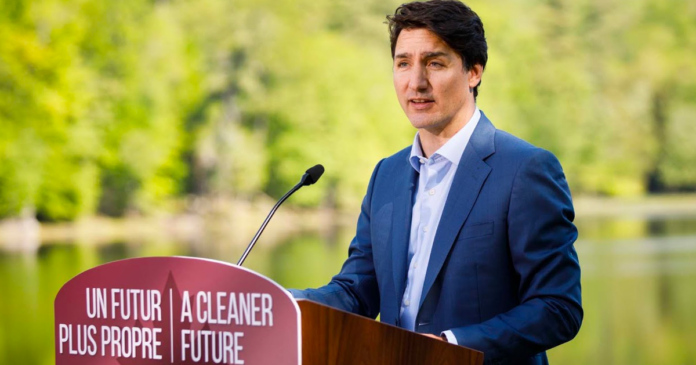What a life, what a woman, what a Queen.
The world said goodbye to Her Majesty Queen Elizabeth II on Sept. 8th 2022. I fully admit I am in a state of mourning myself, contemplating the loss of a woman who reigned for nearly 50% of Canada’s entire history, and all of my lifetime. It’s like finding out the moon is gone, or that electrons don’t work anymore.
We now enter the second post-Elizabethan age. The world tumbles off its axis, as the star that was Elizabeth Alexandra Mary Windsor goes to join the rest in the heavens above us.
Of course, as with the death of all well-known people who devoted their entire lives to the service of Canadian and British tradition — there are detractors. Not so much to speak ill of Her Majesty, but instead to tell us how great it would be to dump the monarchy now that she’s gone.
And what a tragedy that would be.
The monarchy in Canada is a stable institution in a sea of global turbulence. Our head of state is a neutral figurehead, free from the whims and nastiness that has become an unpleasant norm in the modern partisan political world.
No matter who the prime minister is or what party he or she is a member of, we can all look to the monarch and toast them, while we say to heck with the rest.
The monarchy is a living embodiment of our entire country, our culture, and authority. Monarchy brings the nation and all its traditions to life. And then we shower them in jewels and pledge allegiance to them. Doing something that no other political system does — bringing a human face to the ideals we hold so dear.
The Queen was, and the new King now is, the guardian of all our rights. Rights that we do not get from any politician or government but that come from a higher power – and are safely treasured by the Monarch.
The prime minister now leads His Majesty’s Government. The Opposition leads (now) His Majesty’s loyal opposition. The government and its power belong to the Crown, and because the Crown is the physical embodiment of the people — the government and its power ultimately is ours. It does not belong to Trudeau, or Harper, or Martin or any other politician.
More than an idea in a book, more than words on paper – the monarch is a living breathing entity that you can look at and see and hear, and in some cases shake the hand of.
Many wrongly ask “what does the monarchy do anyway?” And while I understand what they mean, they are asking the wrong question. The monarch doesn’t perform functions the way our elected officials do. The right question is “What is the monarchy?”
The Monarchy is the last stopgap between all constitutional power being wrenched away from the people and given to the government of the day and the bureaucracy. It is the final place where power stops, and looks elected politicians in the eye and lets them know they are not the final ones in charge. A reminder that they merely work on behalf of the people and the person who embodies all the ideals and traditions that came long before any of us.
Another benefit of our constitutional monarchy means we don’t have to swear allegiance to a person of a particular political party, or a piece of paper with some great ideas in it. We swear allegiance to a person with blood in their veins who knows and understands their purpose well. Who has no intention to exploit you or me, and is governed by over 1000 years of law and tradition.
And while most republics around the world trade in their constitutions for new ones like we all trade in our phones – our Queen and the monarchy stand above the rest of them providing something that most nations of the world don’t have – stability.
Being one of the oldest governments in the world, it has provided us with something most other nations in the world can only hope for – relative peace.
While we would never celebrate 70 years of Justin Trudeau or Stephen Harper, we all gladly celebrated such a legacy for Queen Elizabeth II for her Jubilee, and will mourn her passing deeply now.
Her Majesty lived up to, and lived out, the dignity of her office with such grace and elegance, we and the world were blessed to have her. While she passed no bills, declared no wars, raised no taxes, she was the crown jewel of our culture and society.
I send my deepest and most sincere condolences to the Royal Family, the people of the United Kingdom, Canada, and all the Commonwealth at this time, as they mourn the loss of such a person.
God Save the King, God Bless Canada, and God rest you Elizabeth Alexandra Mary Windsor.



























